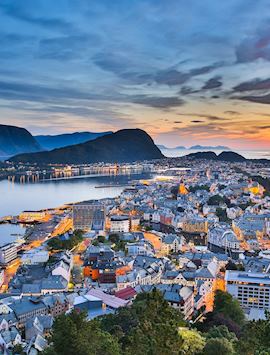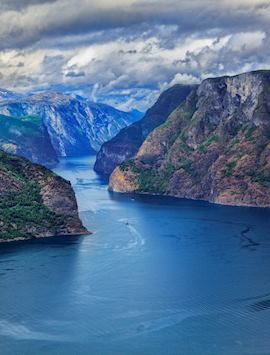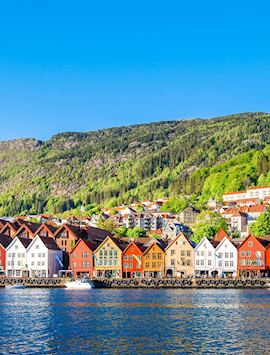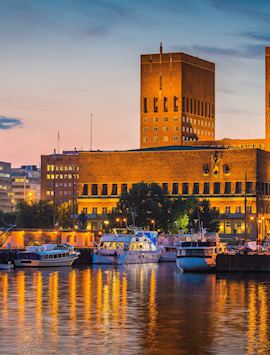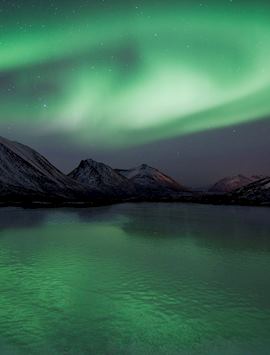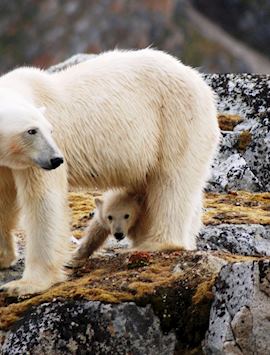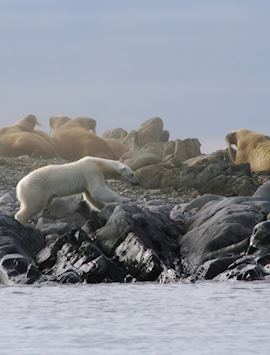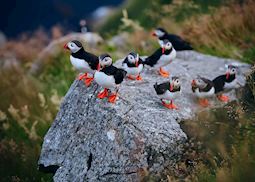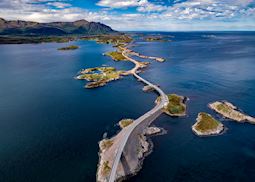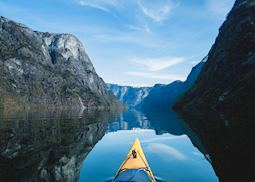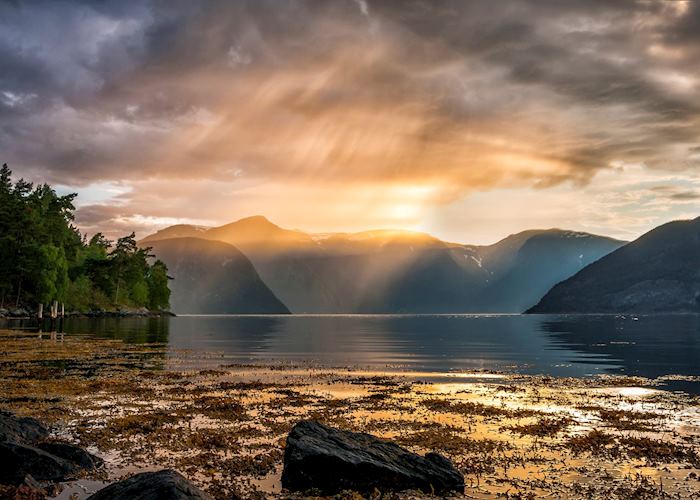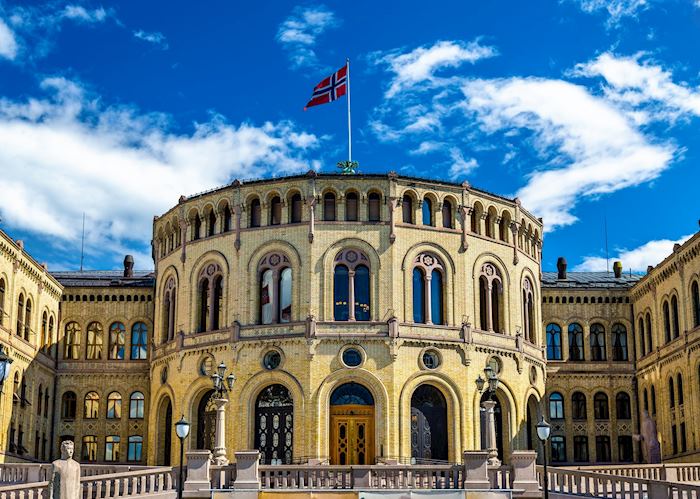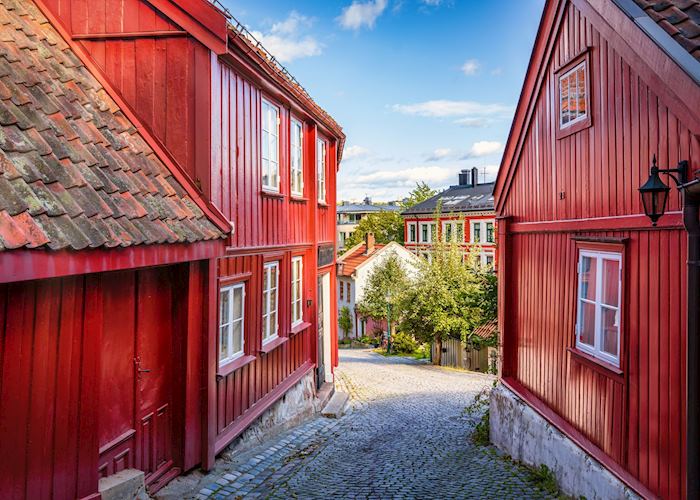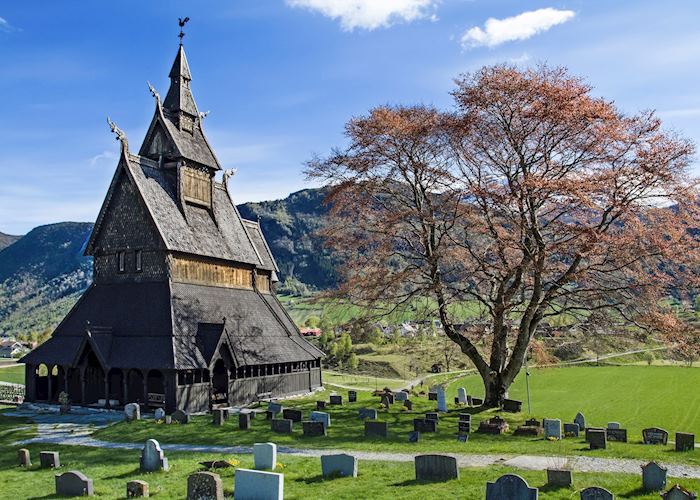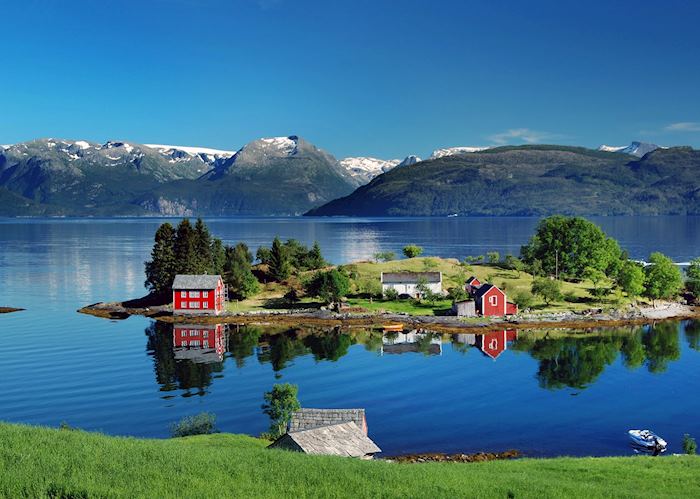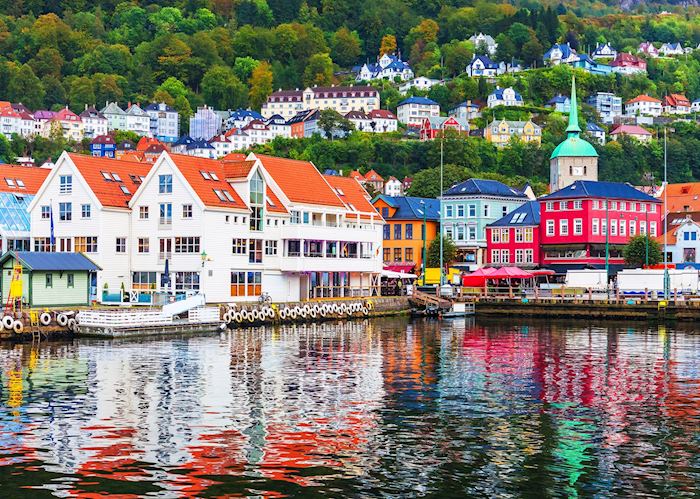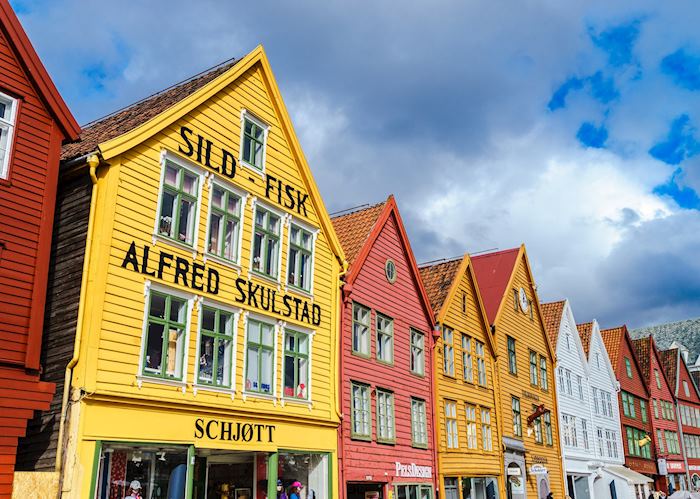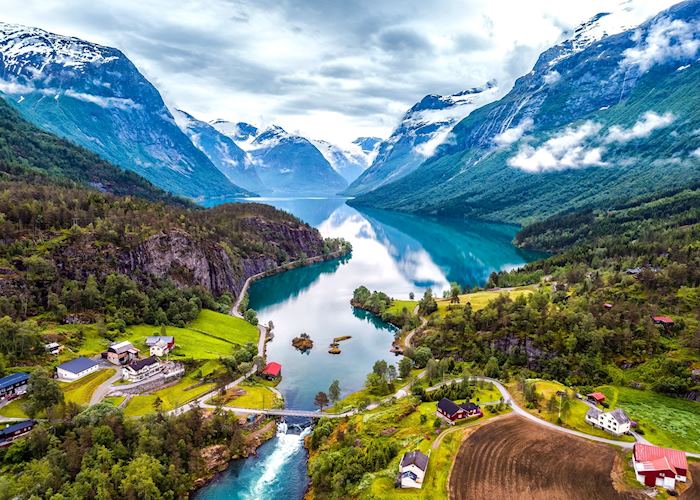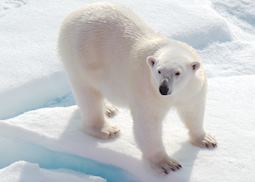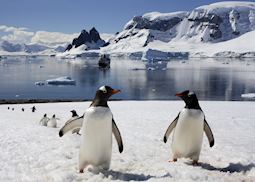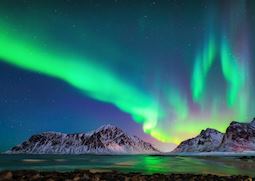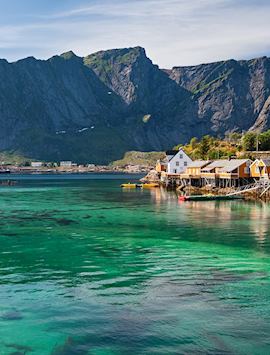
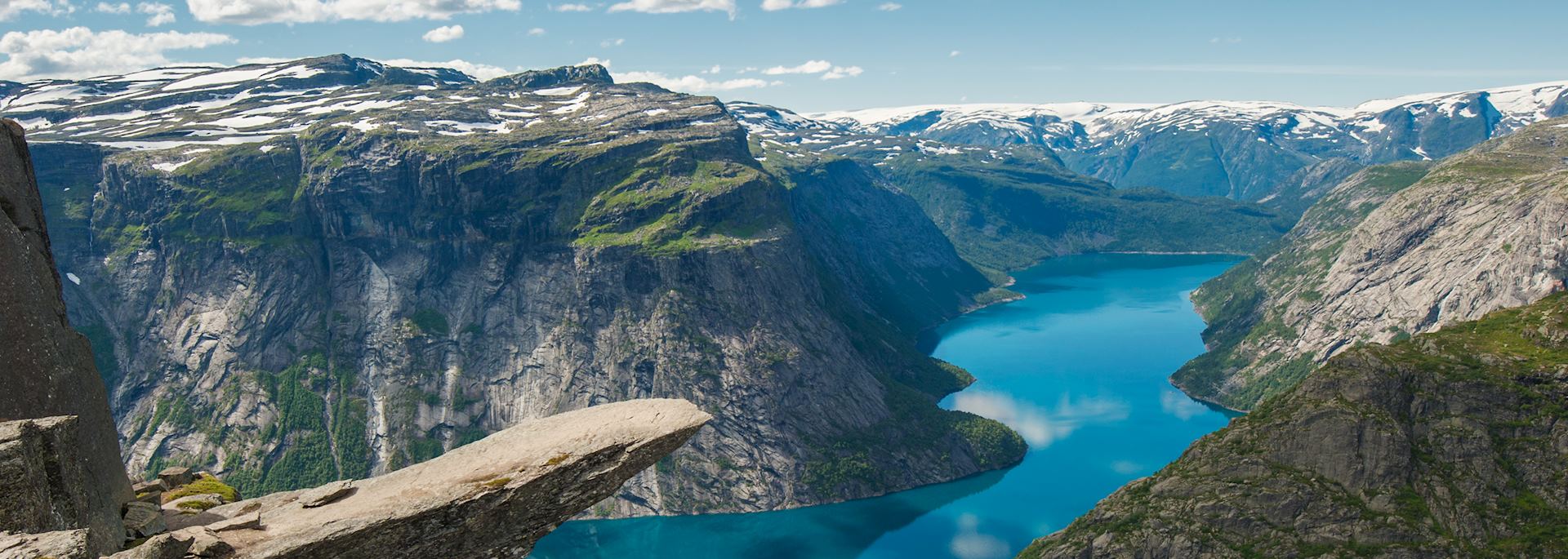
Tailor-made Norway holidays shaped around your passions
Blue-black water in narrow fjords. Glaciers moving through steep-sided valleys. Viking heritage in cool, contemporary Oslo. Immaculately fresh seafood in Bergen... A visit to Norway provides a buffet of Nordic pleasures. Our specialists have explored from the myth-wreathed western coast, where stories of Odin and Thor still feel very present, to the sunny archipelago around Oslo, where modern Norwegians spend their summer days.
We can craft a holiday to Norway that’s especially suited to your style and taste, whether that’s getting outdoors to enjoy the epic scale of the landscape or delving into the country’s rich history at its many museums. We might arrange for you to hike up a glacier or cruise through one of the scenic fjords. You can take a cycling tour to admire Art Nouveau architecture in Ålesund, or enjoy a guided food tour that lets you discover Oslo’s Viking culinary traditions and present-day food scene.
Suggested tours for Norway
These tours give you a starting point for what your holiday to Norway could entail. Treat them as inspiration, as each trip is created uniquely for you.
Suggested activities for Norway
Whatever your interests, our specialists will build activities into your trip that connect to how you want to experience Norway.
-
Runde Bird Island ![Puffins on Runde Bird Island]()
Runde Bird Island
ÅlesundRunde Bird Island
Runde Island is one of the most important avian nesting sites in Norway. Spend the day on a private tour exploring the island’s rugged coast and admiring its abundant birdlife, which can include more than 100,000 nesting puffins.
View details -
Atlantic Ocean Road ![Atlantic Ocean Road]()
Atlantic Ocean Road
ÅlesundAtlantic Ocean Road
Drink in Norway’s seascapes and explore at your own pace with this privately guided day tour of the Atlantic Ocean Road, an architectural feat and a visually striking drive. You’ll also stop for lunch at a traditional oceanfront seafood restaurant.
View details -
Kayaking in the fjords ![Nærøyfjord]()
Kayaking in the fjords
The Norwegian fjordsKayaking in the fjords
Spend a morning or afternoon kayaking on the mirrored waters of Sognefjord, Norway’s largest and deepest fjord, with a private guide. You’ll also navigate a smaller branch of water for a quieter experience, spotting wildlife and waterfalls as you go.
View details
Why travel with Audley?
- 100% tailor-made tours
- Fully protected travel
- Established for over 25 years
- 98% of our clients would recommend us
Best time to visit
Our specialists advise on the best months to visit Norway, including information about climate, events and festivals.
Request our brochure
Covering all seven continents, The World Your Way shows you how you can see the world with us. It features trip ideas from our specialists alongside hand-picked stays and experiences, and introduces our approach to creating meaningful travel experiences.
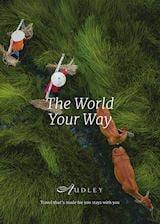
Useful information for planning your holiday in Norway
The official language of Norway is Norwegian, which has several regional dialects. Generally, Norwegians are fluent English speakers and you’ll have no problem communicating while here.
The currency of Norway is the krone (NOK). You can exchange common currencies at banks, which are plentiful, and it’s easy to find an ATM in most places. Credit and debit cards are widely accepted across the country.
In Norway, a discretionary service charge is almost always added to the bill, making it unnecessary for an additional tip. If a service charge is not added, then rounding up the bill or adding 5 to 10% is perfectly acceptable, but not expected. Tour prices include a gratuity, but if you feel your guide was exceptionally helpful or friendly, a tip will be appreciated.
Norwegian dishes tend to be fresh, healthy, and locally sourced with king crab, reindeer, lingonberries, fish, moose, locally made cheese, honey, and wild mushrooms regularly on the menu. In recent years, some of the world’s most renowned chefs have reimagined traditional local ingredients and, in the process, made Norway an exciting culinary destination.
Food festivals, Michelin-starred restaurants, and food experiences are worth seeking out to try dishes such as fårikål (lamb stew), lutefisk (dried, salted cod), and pølse med lompe (a hotdog wrapped in a potato-based flatbread).
Norway also has a burgeoning microbrewery scene, and a fledging, small-scale wine industry.
For the latest travel advice for Norway, including entry requirements, health information, and the safety and security situation, please refer to the Foreign, Commonwealth & Development Office website.
Norway’s historic cities, primal landscapes, and culinary prowess provide a host of experiences from boat trips and mountain biking to food tours and gallery visits. Norway’s history and heritage offer plenty of interest and you could take a guided walking tour of Oslo, discover Ålesund’s Art Nouveau architecture on an e-bike tour, or explore the country’s fine food scene by visiting markets, fish stalls, and cheesemongers on a food tour of Bergen.
Norway’s great outdoors is every bit as impressive as the photos suggest and you could join a guided hike to discover waterfalls, mountains and glaciers, kayak down a fjord between sheer cliffs, or drive the Atlantic Ocean Road, a snaking journey linking a series of tiny islets.
Visit in winter and you’ll find a snowy wonderland where you could spot the billowing northern lights, go dog-sledding, or even stay in an ice hotel.
Sleek Scandinavian style combines with scenic locations at Norway’s hotels, and you could choose to stay in a stylish urban oasis, rustic, family-run guesthouse, or a luxury lodge on a glittering fjord.
For example, you could opt for the timeless elegance and storied history of Oslo’s Grand Hotel, minimalist Nordic styling at a waterfront hotel in Tromsø, or period charm at a former bank in central Bergen.
In more rural areas, you’ll find a secluded log cabin hotel with views over the inky waters and snow-capped peaks of a northern fjord, or a hand-crafted, hillside retreat with hiking, cycling, snowshoeing, and kayaking on the doorstep.
To get a better idea of what’s on offer, browse our collection of places to stay in Norway.
Most visitors to Norway start their trip in Oslo then make their way to the coast to see Bergen and the Norwegian fjords, after which they might head north to Tromsø and the Arctic. In cosmopolitan Oslo you can visit the neoclassical Royal Palace and futuristic opera house, museums dedicated to the works of Munch and Ibsen, as well as the Nobel Peace Center.
The ragged west coast is home to a procession of steep-sided Norwegian fjords accessed from the welcoming town of Bergen which is considered the gateway to the fjords, or the fishing town of Ålesund to the north.
To see the Norwegian Arctic, you’ll need to head to Tromsø where you can sail under the midnight sun in summer and go dog-sledding in winter.
It takes around two hours to fly from London to Oslo.
The time zone in Norway is UTC+1 hour. Daylight Savings Time is observed from the last Sunday in March to the last Sunday in October.
The best way to get around in Norway is by road, boat, and air. Depending on where you want to go and what you’d like to see, you could drive around Norway in a rental car, take a cruise along the spectacular Norwegian fjords, or fly between destinations that are further apart. If you’d prefer not to drive yourself, we can also arrange for a private vehicle and driver-guide to take you between destinations.
Use our travel tool to find up-to-date visa and passport requirements for Norway. Enter where you’re travelling to and from (including any stopover destinations en route or flight layovers), along with your intended travel dates and passport details, for a full list of requirements.
Your doctor can provide you with vaccine advice for Norway, but you should also ensure you’re up to date with the recommended vaccinations for your home country. You can also check the suggested vaccinations on the Travel Health Pro website.
Norway in pictures
Other popular destinations
Still looking for ideas? If Norway has captured your interest, we think you might also like these destinations.


